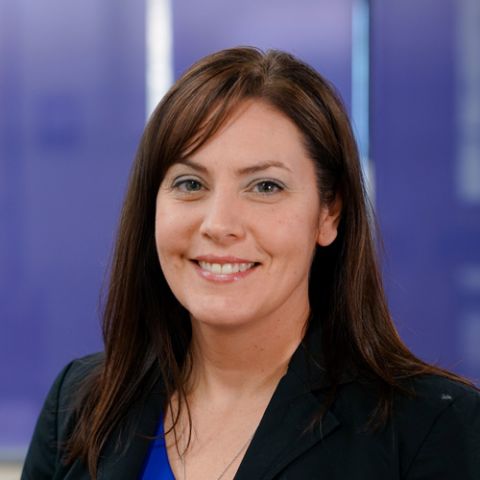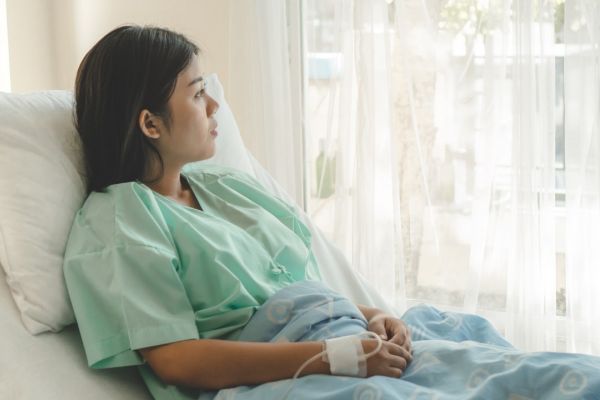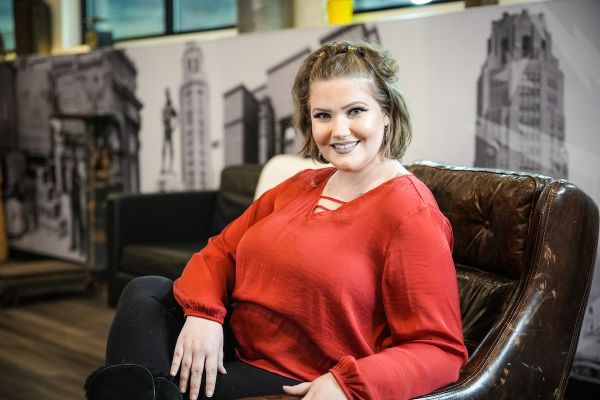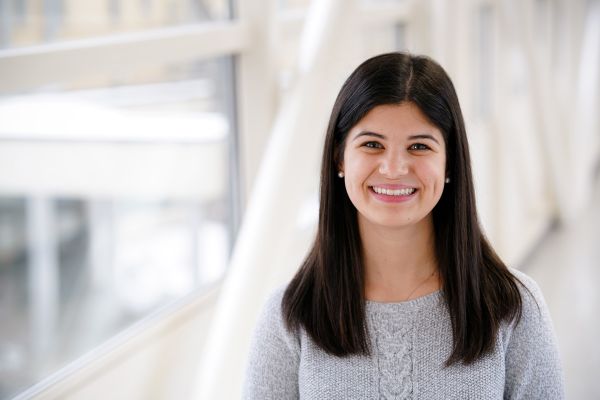It's a time most young people dream about: Being in your 20s, finally an adult, out in the world and working your first job, maybe living in your first apartment alone or with a roommate. It's an exciting time full of change and new adventures — something that can feel upended and derailed with a cancer diagnosis.
Approximately 5% of all cancers diagnosed annually in the U.S., equating to approximately 90,000 new cases, are diagnosed in the adolescent and young adult range, or between the ages of 15 and 39. "About 25,000 cases per year are found in people in their 20s," says Denise Rokitka, MD, MPH, Director of Pediatric and Adolescent Cancer Survivorship and Director of the Young Adult Program and Oncofertility Program at Roswell Park Comprehensive Cancer Center.
Through the Adolescent Young Adult Program at Roswell Park, patients are offered specialized care to meet their specialized needs, with experts who are qualified to treat their rare cancers and access to a team that includes dieticians, psychotherapists and fertility doctors to help them deal with all the ways in which cancer changes their lives.
Leukemia, lymphoma and testicular cancer are more likely to be diagnosed in a person's early 20s, with breast and thyroid cancer and melanoma developing later in a person's 20s. Young men and young women are equally likely to hear the words "You have cancer" during this time of their life. There's been a decrease in new cases among this age group recently in melanoma, something Dr. Rokitka attributes to messaging about the importance of sunscreen and taking care of your skin, and in cervical cancer, while there have been increases in the rates of colorectal, thyroid, kidney and uterine cancers.
It's not currently clear why these young adult cancers develop, although there are some genetic factors at play in a person's 20s, including genetic mutations like the BRCA gene linked with breast cancer and P53 mutations, pertaining to a gene that makes a tumor-suppressing protein that can help the body fight cancer before it develops. "The incidence of hereditary cancer gene mutations is thought to be low, around 5-10% of all cancers," Dr. Rokitka says. "There are also some disorders that can put a patient at a higher risk for colon cancer such as Familial Adenomatous Polyposis Syndrome or FAP. Usually, there's some family history of someone being diagnosed with cancer in their 20s or at an earlier age than is typical."
Young Adult Program at Roswell Park
Our Young Adult Program offers nationally designated comprehensive cancer care, plus support and services specifically designed to help you and your family now — and for years to come.
Learn MoreKnowing family history is important
Genetic testing to determine whether a cancer is hereditary, or if someone might have a higher risk for developing cancer due to family history, is happening more often, and young adults also are being directed toward genetic counseling to see whether they're a good candidate for testing, Dr. Rokitka says. Colorectal, thyroid, solid-tumor cancers like breast cancer, and leukemias are all types of cancer that might have hereditary factor, she says, and young people in general are encouraged to talk with their parents and relatives about their family history to understand their possible inherited risks.
"Colon cancer is increasing in incidence and we think it's related to environmental factors too, like the processed foods we eat and the overall unhealthy body weights you find in most of the U.S.," she says. "Screening for colon cancer typically starts at age 45, but if you have a family history of colon cancer or familial adenomatous polyposis, a condition in which a high number of polyps grows in the colon, some of those patients start their first colonoscopies in their teens because, by the time they hit their 20s, they could have so many polyps you have to do a colectomy (removing the colon). It depends on what the family history is and then you do genetic testing to figure that out."
Will this change their future?
Another big hurdle for cancer patients in this age range is questions of fertility: Will I be able to have a family after going through treatment? Should I even consider having kids if this is something hereditary?
"The risk is dependent on the kind of therapy they'll receive," Dr. Rokitka says. "Just having the conversation about fertility is important. During an AYA consultation, we talk about emotional concerns, financial concerns, impact on a patient's life and body, and rightly so. In the cancer-specific clinics, the team is focused on your cancer treatment and disease and it's easy to forget the rest of the parts of a person. We do offer counseling and psychotherapy. There's research that shows patients regret not having the conversation about fertility and kids."
Cancer is a disruptor at any age, but it hits especially hard in young adults as they're trying to finish college, start their careers and make a life for themselves. "If you're in your early 20s and you're in the midst of college and are diagnosed with cancer you may question if you need to take a break from school? We've helped navigate that with patients, calling special education departments or calling their admissions department and providing letters and making sure that the institute understands this is hopefully just a break. I've had patients who had scholarships to college trying to figure out if they can take a break and keep their scholarship," she says. In addition, patients feel a strong need to continue life as normal, which includes working. Thus, it's important to make it very clear to keep up with the treatment schedule established by a patient's care team, because treatment is more effective when given on the timeline suggested by doctors.
Genetic Screening at Roswell Park
Read more information about genetic screening and genetic counseling at Roswell Park.
Learn MoreDismissal can lead to later-stage detection
The symptoms for cancer in young adults are the same for those in older adults but might be dismissed by doctors because the idea of a young person getting cancer might still seem unlikely, Dr. Rokitka says. "The issue is, because it's rare, a lot of primary care providers miss it or they dismiss the symptoms. Another issue is that a lot of young adults are uninsured or underinsured. The Affordable Care Act made it better than it was a decade ago, but young adults tend not to take time to go get themselves checked out. They'll often go to an urgent care center because it fits better into their schedule and thus when finally diagnosed they have advanced stage cancer. It's a tough situation and hard to know how to manage and help patients navigate the medical system to fit their needs."
As the mother of three sons, Dr. Rokitka stresses to them that they need to speak up if they see or feel anything unusual. "Cancer is the fourth-leading cause of death in 20-year-olds, behind homicides, accidents and suicides, in large part because it's not found until later stages due to dismissal. The more I have these conversations, the more I tell my three boys, if you feel something weird, if something doesn't seem right, if there's a lump or bump or anything, you need to bring it to my attention. If you have persistent symptoms or concerns, you need to be persistent and be seen by a healthcare provider."




